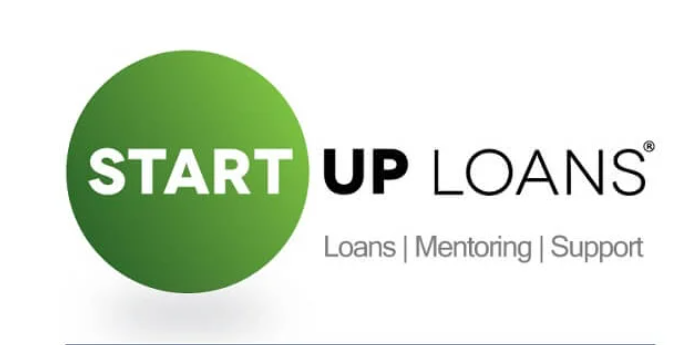A Comprehensive Guide
In recent years, the United Kingdom has experienced a surge in the number and diversity of online loan schemes. With the increasing shift towards digital financial services, online loans have become a popular choice for individuals and small businesses looking for quick, convenient, and often unsecured access to funds. However, the landscape of online lending in the UK is both broad and complex, featuring a mix of legitimate lenders, government-backed schemes, and predatory operations. This article offers a deep dive into the key aspects of online loan schemes in the UK, including types, providers, regulations, risks, and best practices.
1. What Are Online Loans?
Online loans refer to borrowing options that can be applied for, processed, and disbursed entirely through digital platforms. These loans are typically offered by banks, credit unions, peer-to-peer lenders, fintech companies, and government programs.
Key Features:
- Digital application and approval process
- Fast disbursal of funds (often within hours or days)
- Varying repayment terms and interest rates
- Often require minimal paperwork
2. Types of Online Loans in the UK
a) Personal Loans
These are unsecured loans meant for personal use such as debt consolidation, home improvements, or emergency expenses. Offered by banks and fintech lenders.
b) Payday Loans

Short-term, high-interest loans meant to cover immediate cash needs until the next payday. Although controversial, they are still available with tighter regulations.
c) Business Loans
Small and medium enterprises (SMEs) can apply online for various business loan types including unsecured loans, invoice financing, and equipment loans.
d) Government-Backed Loans
The UK government, through schemes like Start Up Loans and Recovery Loan Scheme (RLS), offers financial assistance to new and existing businesses.
e) Peer-to-Peer (P2P) Lending
Online platforms like Zopa or Funding Circle connect borrowers directly with individual investors, often offering more competitive rates.
f) Guarantor Loans
Loans that require a second party to guarantee repayment. These are useful for borrowers with poor credit histories.
3. Popular Online Loan Providers in the UK
| Provider | Type | Features |
|---|---|---|
| Zopa | P2P/Personal | Low interest rates, fast approval |
| Funding Circle | Business | Tailored for SMEs, fast funding |
| Amigo Loans | Guarantor | For borrowers with bad credit |
| NatWest | Personal/Business | Traditional bank with online services |
| Start Up Loans | Government | Fixed interest, free mentoring |
4. Eligibility and Application Process
Common Requirements
- UK residency
- Age 18 or older
- Valid ID and bank account
- Proof of income or business plan
- Credit check (varies by lender)
Application Steps:
- Visit the lender’s website
- Complete the application form
- Upload necessary documents
- Wait for approval decision (from instant to a few days)
- Sign agreement and receive funds
5. Regulation and Consumer Protection
The online lending industry in the UK is regulated by the Financial Conduct Authority (FCA). This ensures that:
- Lenders are transparent about fees and interest rates
- Advertising is not misleading
- Borrowers have access to complaints processes
- High-cost credit providers are monitored closely
Key Legislation:
- Financial Services and Markets Act 2000
- Consumer Credit Act 1974
- FCA’s High-Cost Credit Review
Borrowers are also protected by bodies like the Financial Ombudsman Service (FOS) and can verify lender legitimacy through the FCA Register.
6. Risks of Online Loan Schemesa) Scams and Fraud
Fake lenders posing as legitimate businesses can steal personal or financial data. Warning signs include:
- No FCA registration
- Requests for upfront fees
- No physical address or contact number
b) High-Interest Rates
Some payday and bad credit loans come with APRs exceeding 1000%, leading to debt spirals if not managed carefully.
c) Credit Score Impact
Missed payments can severely impact your credit rating, making future borrowing more difficult and expensive.
7. Tips for Safe Online Borrowing
- Check FCA registration: Use the FCA Register to confirm legitimacy.
- Compare Offers: Use comparison websites like MoneySuperMarket, Compare the Market, or MoneySavingExpert.
- Read Reviews: Independent platforms and Trustpilot reviews offer user feedback.
- Understand the Terms: Ensure you know the APR, total repayment amount, and penalties for late payments.
- Beware of Upfront Fees: Reputable lenders do not charge you before disbursing a loan.
8. Future Trends in Online Lending
Open Banking: Lenders are increasingly using real-time bank data to assess creditworthiness.
- AI and Automation: Speeding up the loan approval process through machine learning.
- Green Loans: Loans targeted at environmentally friendly projects.
- Crypto Loans: Emerging platforms offering loans secured by cryptocurrency (still unregulated in the UK).
9. Conclusion
Online loan schemes in the UK offer a fast, convenient, and flexible way to access funds, whether for personal use or business growth. While the digital transformation of lending has opened up opportunities, it also demands caution. Borrowers should always ensure that they are dealing with FCA-regulated entities, fully understand the loan terms, and only borrow what they can afford to repay.
Whether you’re a student looking for emergency funds, a homeowner planning renovations, or a small business seeking capital, there is likely an online loan product tailored for you. However, the key lies in making informed, responsible borrowing decisions.
